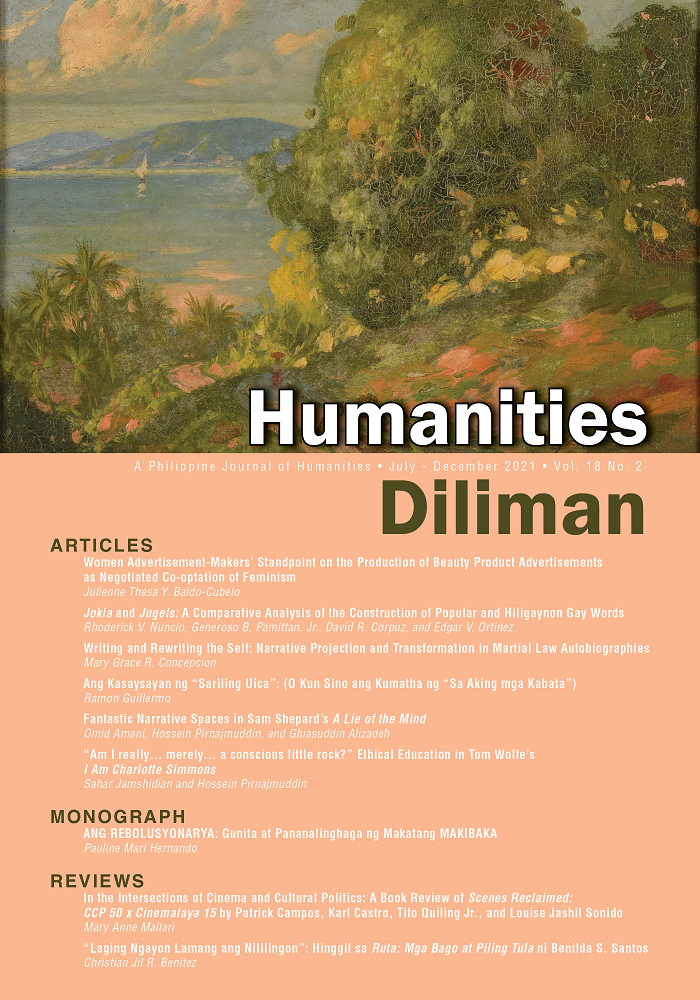“Am I really… merely… a conscious little rock?” Ethical Education in Tom Wolfe’s I Am Charlotte Simmons
Abstract
Time and again Tom Wolfe has been criticized for holding conservative attitudes.
Wolfe’s third novel, I Am Charlotte Simmons, published in 2004, has been considered
by many critics as obvious evidence of his antipathy to political correctness,
sexual liberty, and the American liberal education system in general. The few
sympathetic critics who share Wolfe’s anxiety over the life of young Americans at
colleges assume that neuroscience—with its emphasis on the materiality of the
mind and, consequently, the rejection of free will—has been partly responsible for
the creation of conformist young people. In this article, however, we suggest that
Wolfe’s anxiety is not so much about neuroscience than the way it is taught at
colleges and received by the public. We also show that Wolfe’s criticism of liberal
education rests mainly on the claim that it fails to cultivate autonomous, selfconscious
students capable of critical thinking and instead fosters an egoistic,
self-centered freedom which negates the Other. Here, it seems that Emmanuel
Levinas’s “Pedagogy of Becoming,” based on his ethics of alterity, is most relevant
to the idea of the desire for improving the education system.


